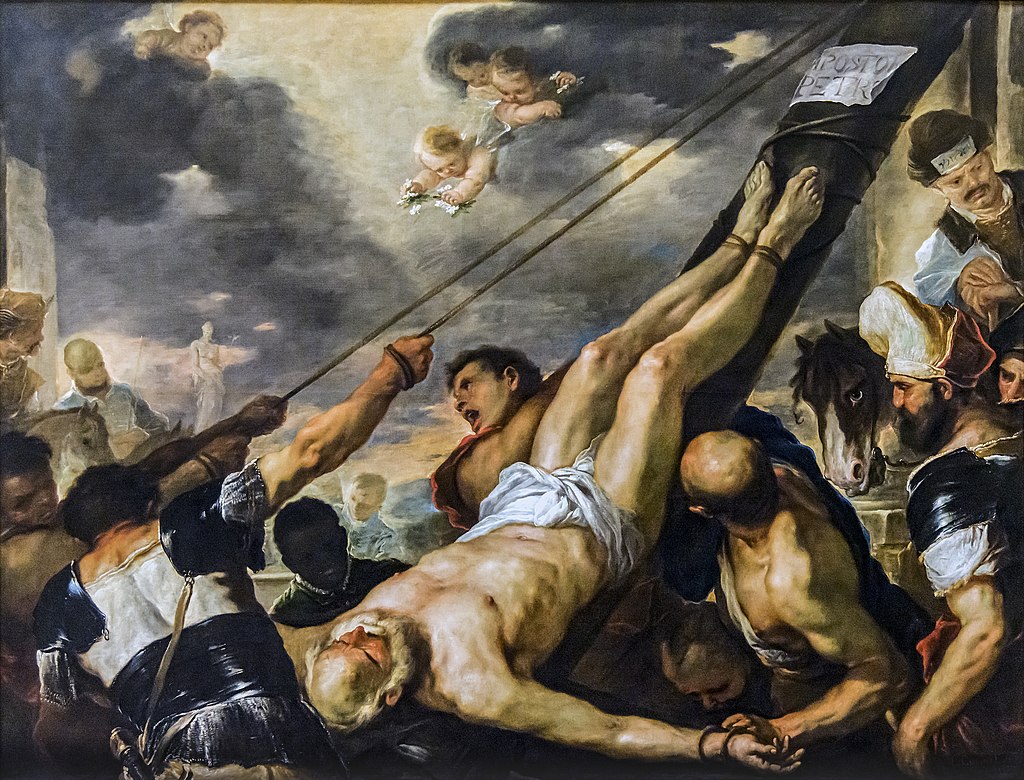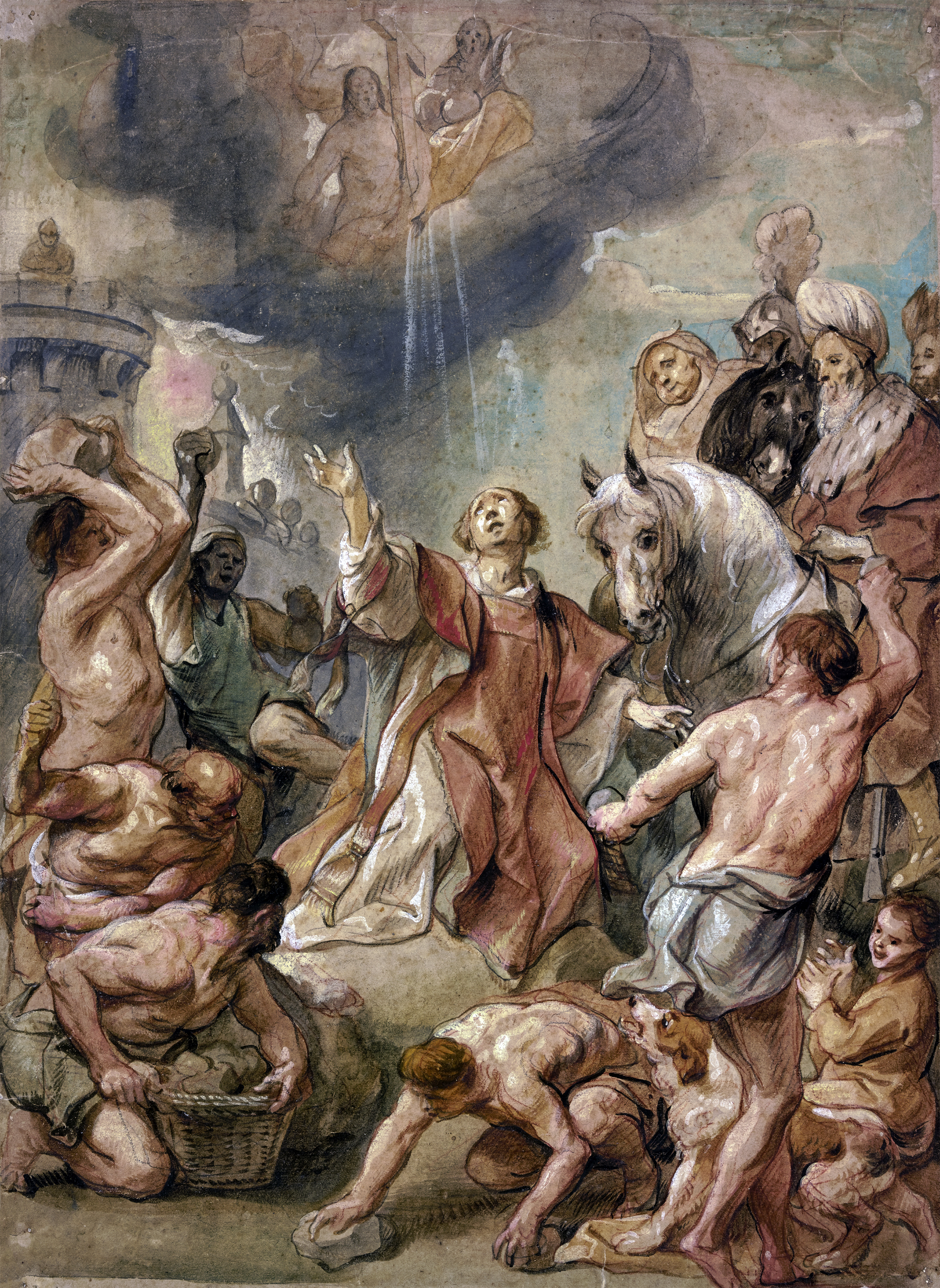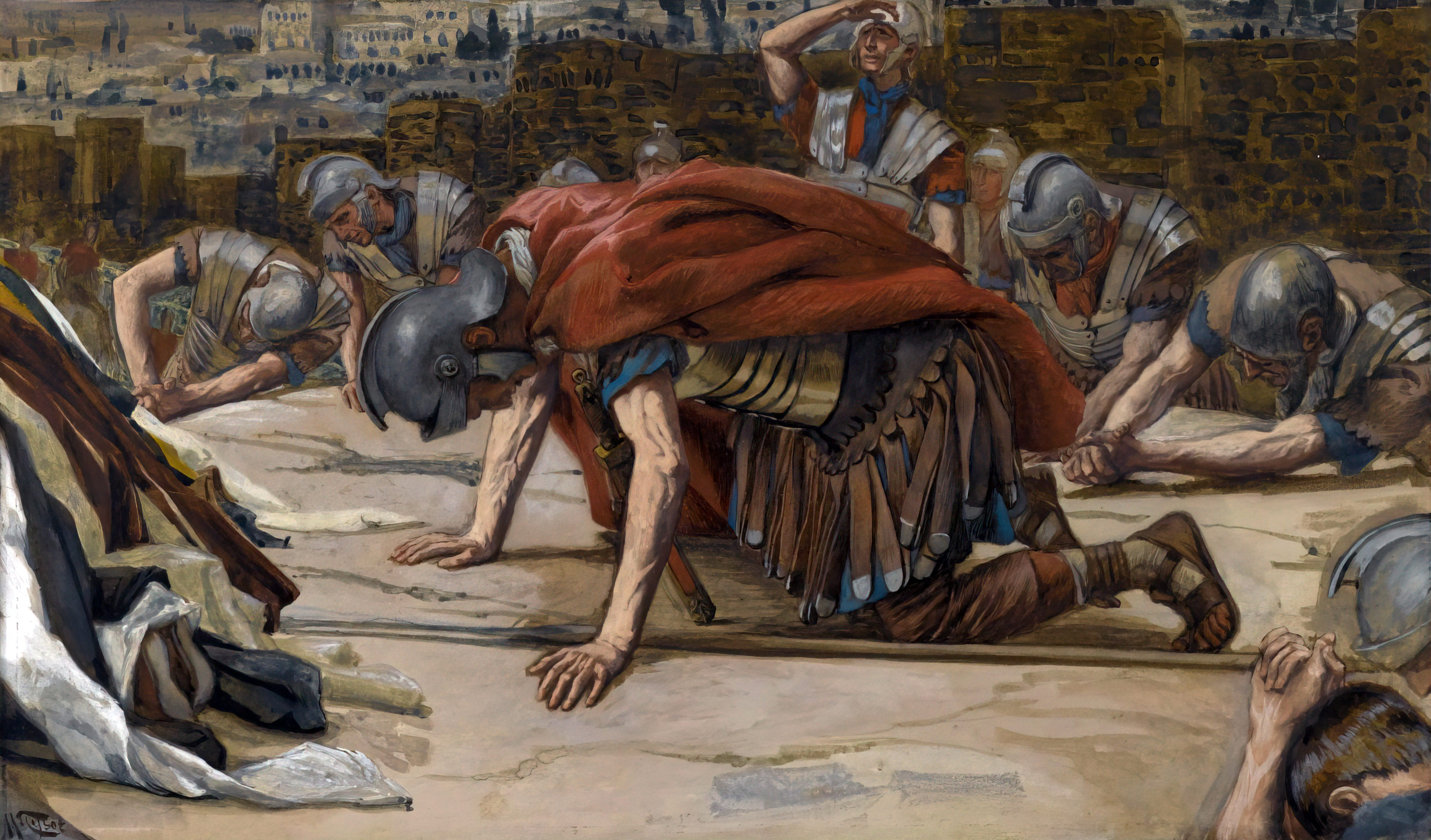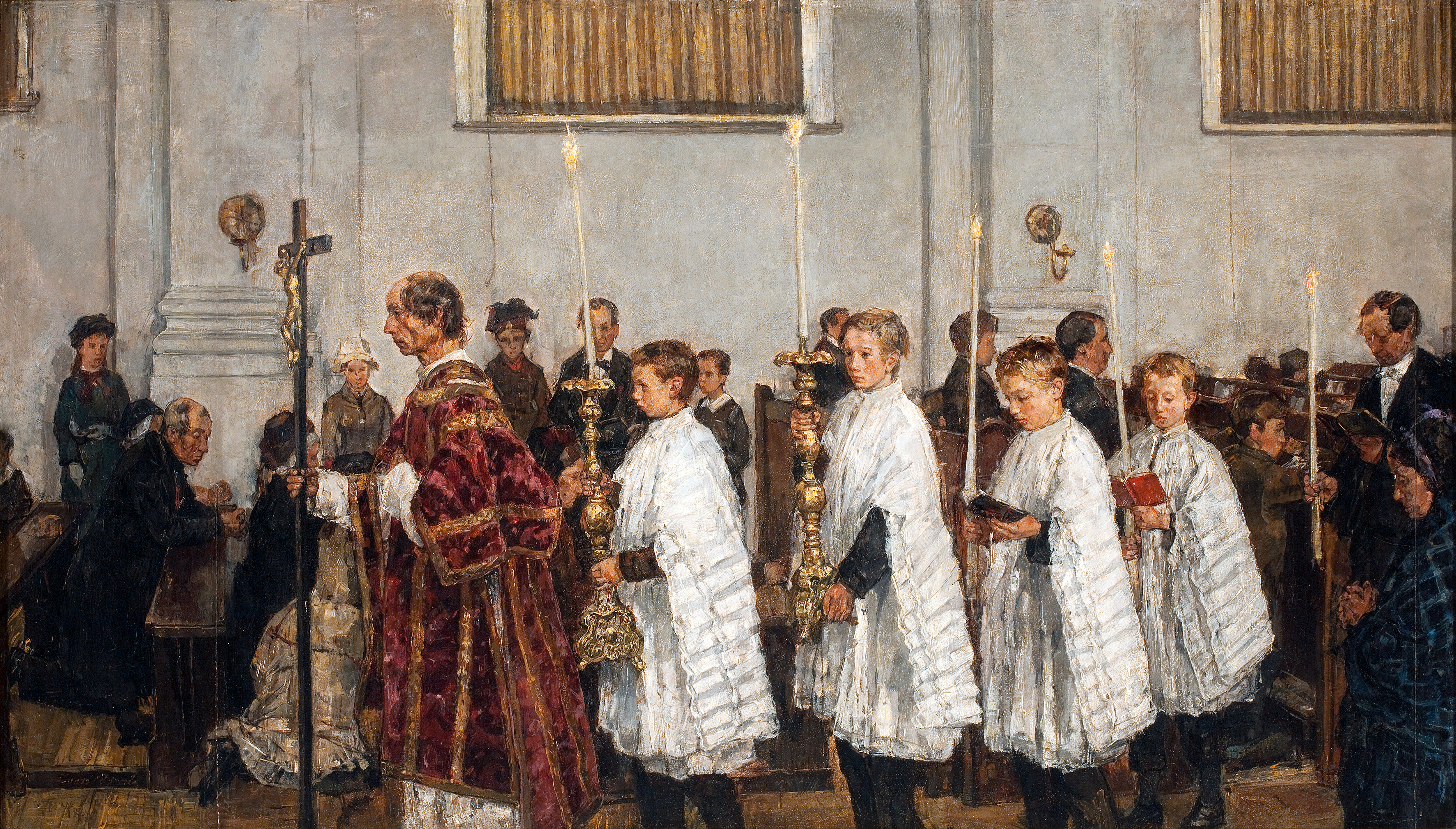Abraham is in a difficult situation in our first reading. Sarah didn’t trust that God would give her children, and she had told Abraham to father a child with his servant, Hagar. Ishmael was born. Today we read that Sarah does conceive and gives birth to Isaac, finally having trusted in God’s promise to multiply Abraham’s descendants through her. But she is still jealous of Hagar, even though she was the one who encouraged her motherhood. She has Hagar sent away, and though Abraham is conflicted, God encourages him that she and Ishmael will be taken care of.
This problem is largely Sarah’s doing, but God encourages Abraham to submit to her wishes. He tells Abraham to let Hagar and Ishmael go, and Hagar despairs of her son’s life. Just when she thinks she can’t bear it any longer, God appears to her and tells her to keep going because He has provided for them, and she sees water.
A similar situation happens in the Gospel reading, only we come in at a different point in the process. After Jesus sends the demons into the pigs, they run into the water and drown. Now the swineherd is left without pigs and needs to replenish his livestock or find a new profession. Maybe this is why he warned the Gadarenes, or maybe it was for some other reason. Regardless, the townspeople are sufficiently upset that they drive Jesus out of town, despite His healing of the demoniacs.
In the first reading, God permits Hagar and Ishmael to struggle even to the point that they think that they will die. In the Gospel, God allows the swineherd to lose his pigs, and he presumably does not have another way to immediately make a living. This leaves Hagar in despair and Ishmael in distress, and it leaves the swineherd concerned enough to encourage the people to drive Jesus out.
In both cases, God never abandoned those He apparently deserted. God either permitted or caused the issues that these people went through, but He explicitly promised that He would look out for Hagar and Ishmael. We can assume that He was also looking out for the Gadarenes. To them, it looked as if they had been abandoned, or at the very least that they had been seriously inconvenienced. To God, all was well.
This is important to keep in mind as we encounter our own inconveniences, troubles, and devastations. God is with us in all of them, and He may even be leading us into them to give us something. Just because we don’t know why He does what He does doesn’t mean that He does it without reason. God knows what He is doing, and His ways are greater than our perception of them. In His estimation, which is the only one that really matters, these things may not be issues at all. Accepted from His hand, directly or indirectly, these trials are turned to glory.
Abraham se encuentra en una situación difícil en la primera lectura. Sara no confiaba en que Dios le daría hijos, y le había dicho a Abraham que engendrara un hijo con su sierva, Agar. Nació Ismael. Hoy leemos que Sara concibe y da a luz a Isaac, habiendo confiado finalmente en la promesa de Dios de multiplicar los descendientes de Abraham a través de ella. Pero todavía está celosa de Agar, a pesar de que fue ella quien alentó su maternidad. Ella hace que despidan a Agar, y aunque Abraham está en conflicto, Dios lo anima diciéndole que ella e Ismael serán cuidados.
Este problema es en gran parte culpa de Sara, pero Dios anima a Abraham a someterse a sus deseos. Le dice a Abraham que deje ir a Agar e Ismael, y Agar se desespera por la vida de su hijo. Justo cuando piensa que no puede más, Dios se le aparece y le dice que siga adelante porque Él ha provisto para ellos, y ella ve agua.
En el Evangelio se da una situación semejante, sólo que llegamos en un punto diferente del proceso. Después de que Jesús envía a los demonios a los cerdos, estos corren al agua y se ahogan. Ahora el porquero se queda sin cerdos y necesita reponer su ganado o encontrar una nueva profesión. Tal vez por eso advirtió a los gadarenos, o tal vez por alguna otra razón. De todos modos, los habitantes del pueblo están lo suficientemente molestos como para expulsar a Jesús del pueblo, a pesar de que Él cura a los endemoniados.
En la primera lectura, Dios permite que Agar e Ismael batallan hasta el punto de pensar que van a morir. En el Evangelio, Dios permite que el porquero pierda sus cerdos, y presumiblemente no tiene otra forma de ganarse la vida de inmediato. Esto deja a Agar desesperada e Ismael en apuros, y deja al porquero lo suficientemente preocupado como para animar a la gente a expulsar a Jesús.
En ambos casos, Dios nunca abandonó a quienes aparentemente ha dejado solos. Dios permitió o causó los problemas de estas personas, pero prometió explícitamente que cuidaría de Agar e Ismael. Podemos suponer que también cuidaba de los gadarenos. Para ellos, parecía que los habían abandonado, o al menos que habían sufrido graves inconvenientes. Para Dios, todo estaba bien.
Es importante tener esto en cuenta cuando nos enfrentamos a nuestros propios inconvenientes, problemas y devastaciones. Dios está con nosotros en todos ellos, e incluso puede estar guiándonos hacia ellos para darnos algo. El hecho de que no sepamos por qué hace lo que hace no significa que lo haga sin razón. Dios sabe lo que está haciendo, y sus caminos son mayores que nuestra percepción de ellos. En su estimación, que es la única que realmente importa, puede ser que estas cosas no sean problemas para nada. Aceptadas de su mano, directa o indirectamente, estas pruebas se convierten en gloria.
 David Dashiell is a freelance author and editor in the Nashville, Tennessee area. He has three children, a degree in theology, and enjoys writing about philosophy, theology, culture, music, and comedy. You can find his personal blog, Serious Daydreams, on Substack. He is also the editor of the anthology Ever Ancient, Ever New: Why Younger Generations Are Embracing Traditional Catholicism, available through TAN Books.
David Dashiell is a freelance author and editor in the Nashville, Tennessee area. He has three children, a degree in theology, and enjoys writing about philosophy, theology, culture, music, and comedy. You can find his personal blog, Serious Daydreams, on Substack. He is also the editor of the anthology Ever Ancient, Ever New: Why Younger Generations Are Embracing Traditional Catholicism, available through TAN Books.
Feature Image Credit: Luca Giordano, commons.wikimedia.org/wiki/File:Accademia_-_Crucifixion_of_St._Peter_by_Luca_Giordano.jpg
The views and opinions expressed in the Inspiration Daily blog are solely those of the original authors and contributors. These views and opinions do not necessarily represent those of Diocesan, the Diocesan staff, or other contributors to this blog.











